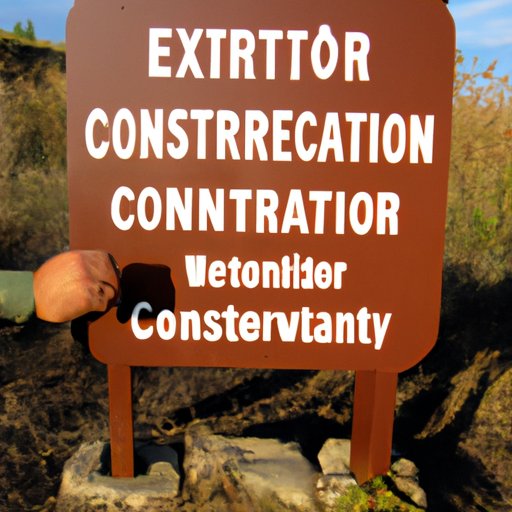Introduction
A degree in environmental science provides students with the knowledge and skills needed to understand and protect our environment. This degree can lead to a number of rewarding careers that benefit both individuals and society. In this article, we will explore what you can do with an environmental science degree and discuss the different career paths available.
Become an Environmental Scientist
Environmental scientists study the environment and the impact of human activities on it. They conduct research, collect data, analyze information, and develop solutions to environmental problems. According to the US Bureau of Labor Statistics, environmental scientists earn a median annual salary of $71,130.
To become an environmental scientist, you need to have at least a bachelor’s degree in environmental science, biology, earth science, chemistry, or a related field. You may also need to have experience in the field, such as working as a research assistant or intern. Additionally, you must have strong analytical and problem-solving skills, as well as excellent communication and presentation skills.

Enter Conservation and Restoration Careers
Conservation and restoration are two closely related fields that focus on preserving natural resources and restoring damaged ecosystems. Conservationists work to protect and preserve natural habitats, while restorationists work to restore damaged ecosystems. These professionals often work in government agencies, non-profit organizations, and private companies.
To enter these fields, you will need a bachelor’s degree in environmental science, ecology, or a related field. Depending on the job, you may also need additional certifications or training. Working in conservation and restoration requires strong problem-solving skills, an understanding of ecological systems, and the ability to think critically.

Pursue a Career in Environmental Policy
Environmental policy professionals are responsible for developing and implementing legislation, regulations, and strategies that protect the environment. They also work to ensure that businesses and organizations comply with environmental laws and regulations. Environmental policy professionals typically work for government agencies, non-profits, and private companies.
To become an environmental policy professional, you will need a degree in environmental science, public policy, or a related field. You should also have a strong understanding of environmental laws and regulations, as well as excellent communication and negotiation skills. Experience in the field is also helpful.
Teach Environmental Science
Teaching environmental science is a great way to share your knowledge and passion for the environment with others. Environmental science teachers work in elementary, middle, and high schools, as well as colleges and universities. To become an environmental science teacher, you will need at least a bachelor’s degree in environmental science, education, or a related field. You may also need to obtain a teaching license or certification, depending on the state.
Teaching environmental science requires strong communication and interpersonal skills, as well as the ability to effectively engage and motivate students. As an environmental science teacher, you will be able to inspire the next generation of environmentalists.
Work in Environmental Law and Compliance
Environmental law and compliance professionals ensure that businesses and organizations comply with environmental laws and regulations. They also work to enforce these laws, investigate violations, and recommend penalties for those who violate the law. Environmental law and compliance professionals typically work for government agencies, non-profits, and private companies.
To enter this field, you will need a degree in environmental science, law, or a related field. You should also have strong knowledge of environmental laws and regulations, as well as excellent communication and negotiation skills. Experience in the field is also helpful.
Conclusion
A degree in environmental science provides students with a variety of career paths to pursue. From environmental scientists to conservationists and restorationists, environmental policy makers, educators, and environmental law and compliance professionals, there is no shortage of exciting and rewarding jobs available in the environmental science field. With an environmental science degree, you will be able to make a positive impact on the world.
(Note: Is this article not meeting your expectations? Do you have knowledge or insights to share? Unlock new opportunities and expand your reach by joining our authors team. Click Registration to join us and share your expertise with our readers.)
